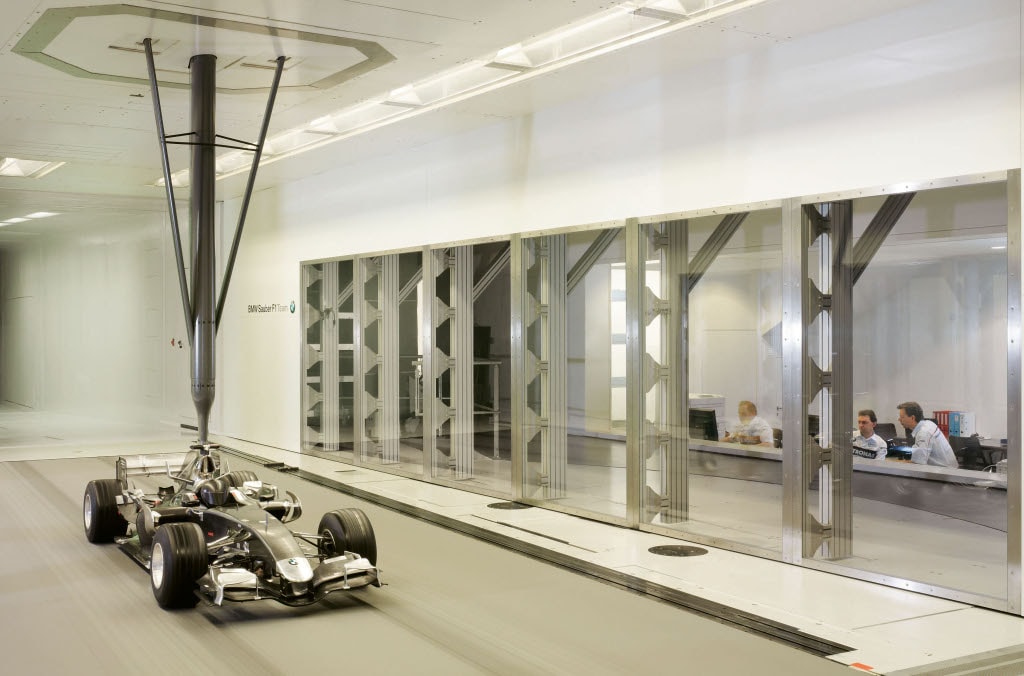Having already announced their 2009 drivers’ lineup, German outfit BMW Sauber are now focused on getting their new car ready as soon as possible. It’s no surprise to anyone that BMW is already ahead of most F1 teams in terms of engine management and KERS development, therefore it’s only natural that they’ll be the first to announce the launch of their 2009 F1 car, the F1.09.
“With immediate effect we will fully focus on the BMW F1.09. After all, after the season is before the season. The roll-out of the BMW Sauber F1.09 has been scheduled for 20th January at Valencia. Afterwards, we will conduct three further tests before the 2009 season kicks off in Melbourne on 29th March - some weeks later than was the case in recent years. The challenges are big but we will stick to our ambitious goal: in 2009, we want to be one of the teams battling it out for the title,” admitted team motorsport director Mario Theissen.
The BMW official has already insisted, prior to the Brazilian Grand Prix on Sunday, that his team will have only one goal for 2009, and that’s winning the world title. After clinching their first pole position and win – both through Robert Kubica – this year, winning the constructors’ title in 2009 would only seem like a natural progression to BMW’s efforts this season.
Theissen also revealed some of the novelties concerning the new car, including the level reached by team’s mechanics in terms of KERS technology and aerodynamic updates.
“In 2009, Formula One will have to face arguably the most dramatic rule changes in the history of the sport. Due to the aerodynamic restrictions, the appearance of the single-seaters will differ massively from this year's Formula One cars. To cut a long story short: the front will be bulkier, there won't be any winglets and superstructures in front of and on the side pods respectively - and the rear wing will be smaller and positioned higher.”
“Furthermore, slicks will make their comeback. In addition, the introduction of the KERS technology for the recovery of brake energy is in the offing. As a result, drivers will have to adapt to new situations in three vital areas of their working environment. And the engineers will have to carry out a lot of work,” concluded Theissen.
“With immediate effect we will fully focus on the BMW F1.09. After all, after the season is before the season. The roll-out of the BMW Sauber F1.09 has been scheduled for 20th January at Valencia. Afterwards, we will conduct three further tests before the 2009 season kicks off in Melbourne on 29th March - some weeks later than was the case in recent years. The challenges are big but we will stick to our ambitious goal: in 2009, we want to be one of the teams battling it out for the title,” admitted team motorsport director Mario Theissen.
The BMW official has already insisted, prior to the Brazilian Grand Prix on Sunday, that his team will have only one goal for 2009, and that’s winning the world title. After clinching their first pole position and win – both through Robert Kubica – this year, winning the constructors’ title in 2009 would only seem like a natural progression to BMW’s efforts this season.
Theissen also revealed some of the novelties concerning the new car, including the level reached by team’s mechanics in terms of KERS technology and aerodynamic updates.
“In 2009, Formula One will have to face arguably the most dramatic rule changes in the history of the sport. Due to the aerodynamic restrictions, the appearance of the single-seaters will differ massively from this year's Formula One cars. To cut a long story short: the front will be bulkier, there won't be any winglets and superstructures in front of and on the side pods respectively - and the rear wing will be smaller and positioned higher.”
“Furthermore, slicks will make their comeback. In addition, the introduction of the KERS technology for the recovery of brake energy is in the offing. As a result, drivers will have to adapt to new situations in three vital areas of their working environment. And the engineers will have to carry out a lot of work,” concluded Theissen.
